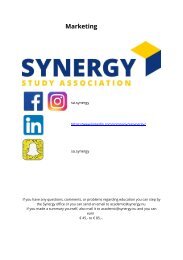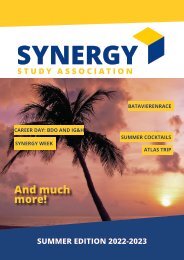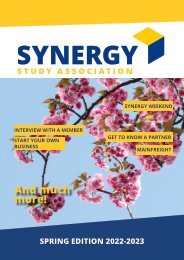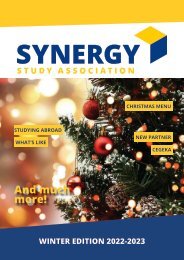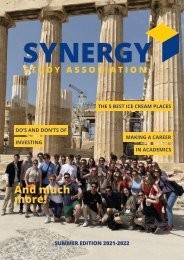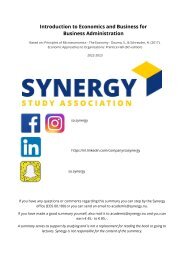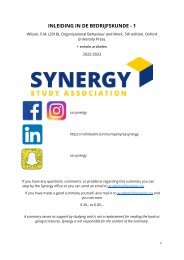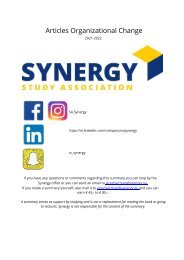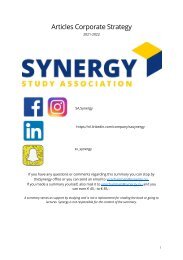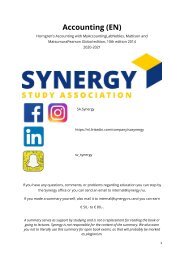You also want an ePaper? Increase the reach of your titles
YUMPU automatically turns print PDFs into web optimized ePapers that Google loves.
technical issues.<br />
4. The IFRS Interpretations Committee assists the IASB through the timely identification,<br />
discussion, <strong>and</strong> resolution of financial reporting issues within the framework of IFRS.<br />
In addition, as part of the governance structure, a Monitoring Board was created. The purpose of<br />
this board is to establish a link between accounting st<strong>and</strong>ard-setters <strong>and</strong> those public authorities<br />
that generally oversee them.<br />
The IASB due process has the following elements: (1) an independent st<strong>and</strong>ard-setting board<br />
overseen by a geographically <strong>and</strong> professionally diverse body of trustees; (2) a thorough <strong>and</strong><br />
systematic process for developing st<strong>and</strong>ards; (3) engagement with investors, regulators, business<br />
leaders, <strong>and</strong> the global accountancy profession at every stage of the process; <strong>and</strong> (4)<br />
collaborative efforts with the worldwide st<strong>and</strong>ard-setting community.<br />
The characteristics of the IASB, reinforce the importance of an open, transparent, <strong>and</strong><br />
independent due process:<br />
- Membership. The board consist of 16 members.<br />
- Autonomy. The IASB is not part of any other professional organization.<br />
- Independence. Full-time IASB members must sever all ties from their past employer.<br />
- Voting. Nine of 16 votes are needed to issue a new IFRS.<br />
The IASB issues three major types of pronouncements:<br />
1. International <strong>Financial</strong> <strong>Reporting</strong> St<strong>and</strong>ards → <strong>Financial</strong> accounting st<strong>and</strong>ards issued by the<br />
IASB are referred to as International <strong>Financial</strong> <strong>Reporting</strong> St<strong>and</strong>ards (IFRS).<br />
2. Conceptual Framework for <strong>Financial</strong> <strong>Reporting</strong> → This Conceptual Framework for <strong>Financial</strong><br />
<strong>Reporting</strong> sets forth the fundamental objective <strong>and</strong> concepts that the Board uses in developing<br />
future st<strong>and</strong>ards of financial reporting. The intent of the document is to form a cohesive set of<br />
interrelated concepts – a conceptual framework – that will serve as tools for solving existing <strong>and</strong><br />
emerging problems in a consistent manner.<br />
3. International <strong>Financial</strong> <strong>Reporting</strong> St<strong>and</strong>ards Interpretations → Interpretations issued by the<br />
IFRS Interpretations Committee are also considered authoritative <strong>and</strong> must be followed. These<br />
interpretations cover (1) newly identified financial reporting issues not specifically dealt with in<br />
IFRS <strong>and</strong> (2) issues where unsatisfactory or conflicting interpretations have developed, or seem<br />
likely to develop, in the absence of authoritative guidance. The IASB will work on more pervasive<br />
long-term problems, while the IFRS Interpretations Committee deals with short-term emerging<br />
issues.<br />
Any company indicating that it is preparing its financial statements in conformity with IFRS must<br />
use all of the st<strong>and</strong>ards <strong>and</strong> interpretations. The following hierarchy is used to determine what<br />
recognition, valuation, <strong>and</strong> disclosure requirements should be used. Companies first look to:<br />
1. International <strong>Financial</strong> <strong>Reporting</strong> St<strong>and</strong>ards, International <strong>Accounting</strong> St<strong>and</strong>ards, <strong>and</strong> IFRS<br />
interpretations originated by the IFRS.<br />
2. The Conceptual Framework for <strong>Financial</strong> <strong>Reporting</strong>; <strong>and</strong><br />
3. Pronouncements of other st<strong>and</strong>ard-setting bodies that use a similar conceptual framework.<br />
User groups are possibly the most powerful force influencing the development of IFRS. User<br />
groups consist of those most interested in or affected by accounting rules. They know that the<br />
most effective way to influence IFRS is to participate in the formulation of these rules or to try to<br />
influence or persuade the formulators of them. These user groups often target the IASB, to<br />
pressure it to change the existing rules <strong>and</strong> develop new ones.<br />
4



